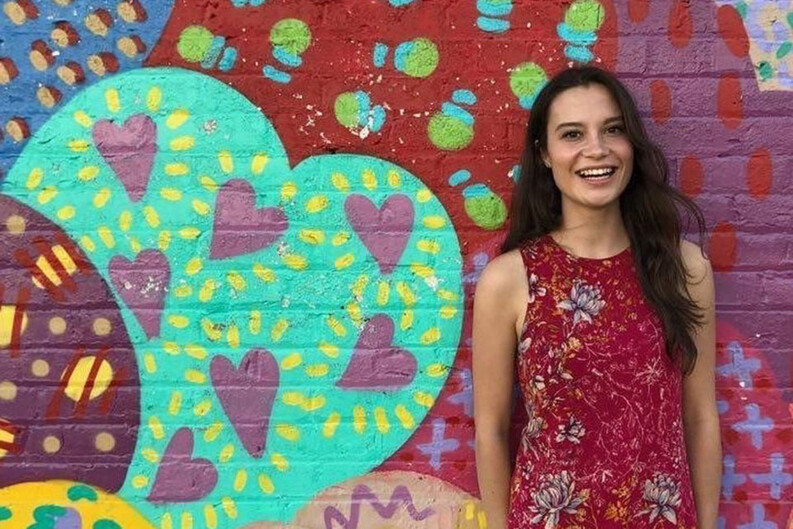Human Rights Program Alum Discusses Work on Transitional Justice in Sri Lanka

Emily Rice graduated from Yale College in 2018. At Yale, she studied Global Affairs and was part of the Multidisciplinary Academic Program in Human Rights (MAPHR), administered by the Schell Center for International Human Rights at Yale Law School. She was also a research assistant at the Political Violence FieldLab. Outside of academics, she participated in Middle East Resolution through Education, Action and Dialogue; Disabilities Empowerment for Yale; and the improv comedy group Just Add Water. After graduating from Yale, she returned home to Australia to begin full-time work at the Public Interest Advocacy Centre, a nonprofit law and policy organization in Sydney. Below, she discusses her postgraduate experience thus far.
What are you working on right now?
At the Public Interest Advocacy Centre, I’m part of a project on transitional justice in Sri Lanka. My main task is creating a conflict map of alleged violations of human rights and international humanitarian law during the Sri Lankan civil war.
What initially drew you to your current position?
I've always been interested in peace processes and negotiating an end to conflict, but I never fully appreciated the mammoth work that comes following a peace negotiation to make that end sustainable and engage in post-conflict reconstruction. In my opinion, one of the most important aspects of that project is achieving justice for people who were affected by conflict, because without a meaningful process where you provide closure to people and bear witness to their experiences, there may be a lot of resentment in countries affected by conflict. This can feed further cycles of violence.
Has your experience in the Multidisciplinary Academic Program in Human Rights (MAPHR) shaped the way you approach your work?
In the Capstone class, we talked a lot about documentation and reporting of human rights violations — how you do this in a way that’s objective, respectful, that isn't leveraging the suffering of people affected by human rights abuses. I've definitely thought about that a lot, because I spend all day looking at documentation of human rights violations, which is so vital, but also can depersonalize victims. You’re entering them into a database and turning them into statistics and figures and cases and incidents, which sounds so cold and dehumanizing.
The work I'm doing now is very much advocacy in real time. We don't think too much about the theory behind what we're doing. We’re doing something that is broadly useful to the human rights community, and we just go ahead and collect data and turn it into advocacy reports. But I think without having that MAPHR background of examining the ethics and the human side of this project, I might do this work in a less respectful, sensitive way. It’s really easy to just talk about people as statistics, but because of MAPHR, I keep in mind the ethical responsibilities of human rights professionals
What would you say is the most challenging part of your job?
The most challenging part of my job is the feeling that everything I'm working on has already happened. I spend every day looking at thousands of people who have already suffered, and so in some ways it doesn't seem preventative. It's really easy to forget why you're doing it —that in the longer term transitional justice is important to help a country move on and break continuous cycles of conflict. Day-to-day, it's so easy to get caught up in the hopelessness of everything that’s [already] happened.
What have you learned since starting in your new position?
You’d think that human rights reporting and advocacy would be about facts, right? For example, let’s say there was a war over territory between two groups in a particular country. Some people will respond, “Well, actually, it was a struggle for self-determination fought by freedom fighters over land that was illegally occupied. “Others will say it was a terrorist insurgency that sought the destruction of a unified state. There are so many ideological layers to a seemingly simple statement that in the past I would have just made without thinking.
What advice would you give MAPHR students and others pursuing a career in human rights?
Unlike other fields, where you’re applying for jobs at the biggest organizations with the best reputation, human rights work isn’t about prestige. Especially when you’re starting out, you’ll likely get fantastic experience at smaller organizations, where you are given more responsibility and (depending on the organization) more experience out of the office, in the field. But of course, there are also huge advantages to working in larger organizations. Basically, go wherever you find work that excites you — don’t take anyone’s advice as gospel, least of all mine!


